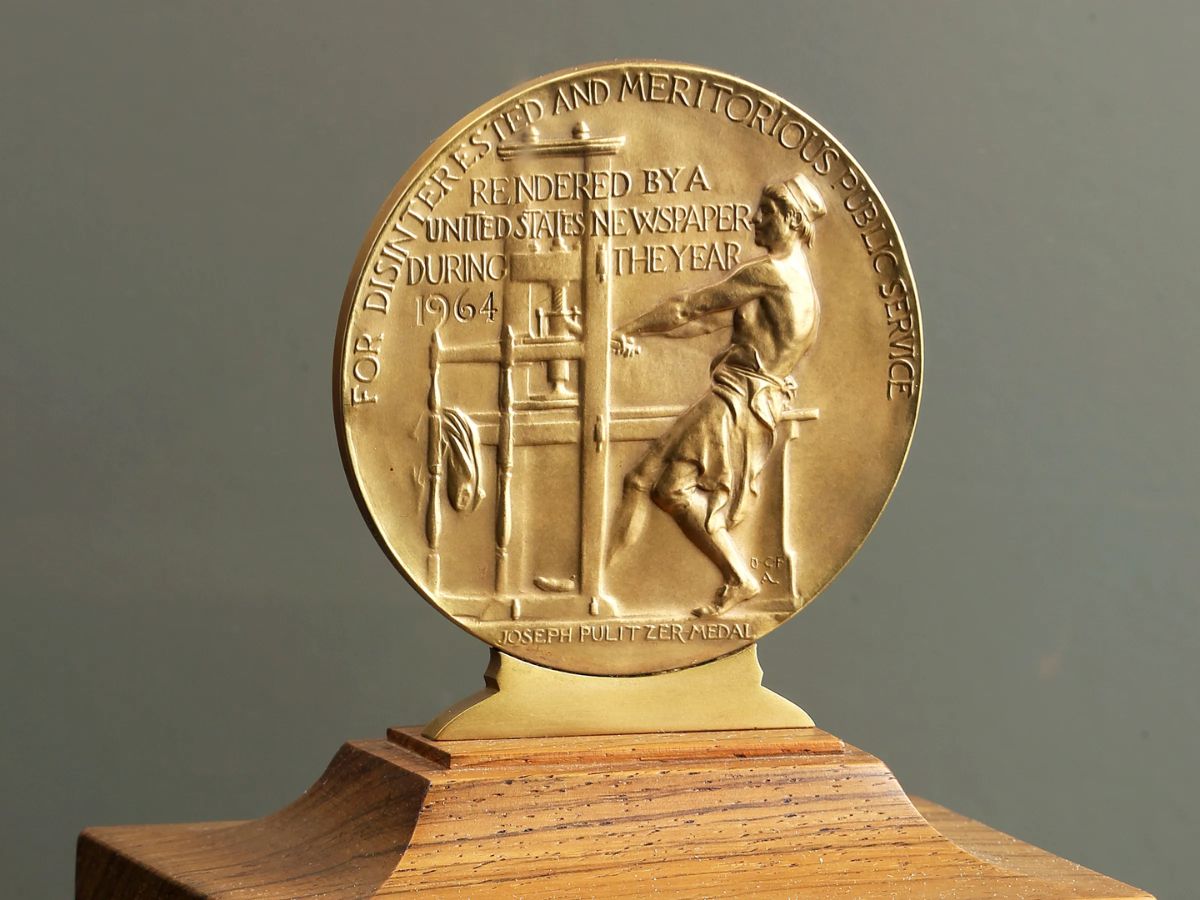
Curiosity often leads us to wonder about the stories behind some of the most prestigious awards in literature and journalism. Among these, the Pulitzer Prize stands out as a symbol of excellence, recognizing outstanding contributions in various categories. Winning this award is a dream for many writers and journalists, marking a pinnacle of achievement in their careers. But what really goes into winning such an accolade? Behind every Pulitzer Prize winner are fascinating tales of dedication, creativity, and sometimes, controversy. In this post, we'll uncover 19 facts about Pulitzer Prize winners that shed light on the hard work, unique stories, and intriguing controversies surrounding this esteemed award. From historical milestones to surprising tidbits about the winners, get ready to be amazed by what lies behind the prestige of the Pulitzer Prize.
Who Has Won the Pulitzer Prize?
Winners of the Pulitzer Prize are a diverse group, ranging from journalists and authors to photographers and cartoonists. This prestigious award recognizes outstanding achievements in journalism, literature, and musical composition in the United States.
-
Bob Dylan, a legendary musician and songwriter, was awarded the Pulitzer Prize Special Citation in 2008 for his profound impact on popular music and American culture.
-
Ernest Hemingway, celebrated for his concise and understated style, received the Pulitzer in 1953 for his novel "The Old Man and the Sea."
Categories of the Pulitzer Prize
The Pulitzer Prize is divided into 21 categories, covering a broad spectrum of journalism, literature, and music composition.
-
Journalism categories include Public Service, Breaking News Reporting, Investigative Reporting, and Feature Writing among others.
-
In Literature, awards are given for Fiction, Drama, History, Biography or Autobiography, Poetry, and General Nonfiction.
-
Music Composition recognizes an outstanding piece of music in any genre premiered in the United States during the year.
Notable Pulitzer Prize Winners in Journalism
Journalists who win the Pulitzer Prize often report on critical and sometimes dangerous topics, bringing truth and accountability to the forefront of public consciousness.
-
The New York Times and The Washington Post jointly won the Pulitzer Prize for National Reporting in 2018 for their coverage of Russian interference in the 2016 presidential election.
-
Kendrick Lamar made history in 2018 by being the first rapper to win the Pulitzer Prize for Music for his album "DAMN.," a collection of songs that captures the complexity of modern African American life.
Pulitzer Prize Records and Firsts
The Pulitzer Prize has seen many firsts and records throughout its history, highlighting the evolving landscape of literature, journalism, and music.
-
John F. Kennedy is the only U.S. President to have won a Pulitzer Prize, which he received in 1957 for "Profiles in Courage" before he took office.
-
Gwendolyn Brooks became the first African American to win a Pulitzer Prize in any category, securing the Poetry award in 1950 for "Annie Allen."
The Impact of the Pulitzer Prize
Winning a Pulitzer Prize can significantly impact an individual's career, elevating their work to a global stage and ensuring their contributions are recognized and remembered.
-
Pulitzer Prizes often lead to increased book sales, speaking engagements, and further opportunities for winners in their respective fields.
-
The award brings a level of prestige and honor that can define a career, making it a coveted achievement for journalists, authors, and musicians alike.
Pulitzer Prize Winners in Literature
The Pulitzer Prize in Literature has celebrated the works of authors who capture the essence of American life, politics, and culture.
-
Harper Lee won the Pulitzer Prize for Fiction in 1961 for "To Kill a Mockingbird," a novel that explores themes of racial injustice and moral growth.
-
Toni Morrison received the Pulitzer Prize for Fiction in 1988 for "Beloved," a powerful narrative about the legacy of slavery in America.
The Future of the Pulitzer Prize
As media and culture evolve, so too does the Pulitzer Prize, adapting to recognize achievements in new and emerging formats.
-
The introduction of the Internet and digital journalism has led to new categories and opportunities for recognition in the Pulitzer Prizes.
-
Innovations in music and literature continue to be recognized, ensuring the Pulitzer Prize remains relevant and reflective of contemporary society.
-
The Pulitzer Prize Board has shown a willingness to honor works that push the boundaries of traditional formats, signaling an openness to future evolution.
-
With each passing year, the Pulitzer Prize garners more attention, inspiring journalists, authors, and musicians to strive for excellence in their work.
-
The diversity of winners and works recognized by the Pulitzer Prize demonstrates its commitment to honoring excellence across a wide range of human experience and creativity.
-
As society changes, the Pulitzer Prize will undoubtedly continue to highlight the most impactful contributions to journalism, literature, and music, ensuring that excellence in these fields is celebrated and encouraged.
A Final Nod to Pulitzer Prize Marvels
Diving into the world of Pulitzer Prize winners opens up a treasure chest of creativity, courage, and commitment. These laureates, from journalists to novelists, have not only mastered their craft but also illuminated the complexities of human experience. Their stories, whether etched in the annals of history or woven from the threads of imagination, challenge us to think, feel, and perhaps change. Let's not just admire their achievements from afar. Instead, draw inspiration from their journeys, their struggles, and their triumphs. Whether you're a budding writer, an avid reader, or simply a curious soul, there's a lesson in each of their stories. So, here's to the Pulitzer winners—may their legacy encourage us to explore deeper truths and tell our own stories with just as much passion and perseverance.
Was this page helpful?
Our commitment to delivering trustworthy and engaging content is at the heart of what we do. Each fact on our site is contributed by real users like you, bringing a wealth of diverse insights and information. To ensure the highest standards of accuracy and reliability, our dedicated editors meticulously review each submission. This process guarantees that the facts we share are not only fascinating but also credible. Trust in our commitment to quality and authenticity as you explore and learn with us.


